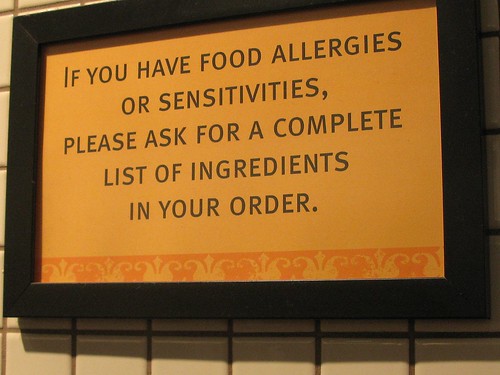 I start at a section entitled "GMOs and liver problems". There are 3 statements and 4 references tied to the section and one can be discounted right off the bat. Before I continue, I feel the need to explain when/why articles or references can be discarded (this explanation is brought to you by Biochica's spouse, who runs a constant commentary in my mind). The section ended up being pretty long so it is now a permanent section in this blog.
I start at a section entitled "GMOs and liver problems". There are 3 statements and 4 references tied to the section and one can be discounted right off the bat. Before I continue, I feel the need to explain when/why articles or references can be discarded (this explanation is brought to you by Biochica's spouse, who runs a constant commentary in my mind). The section ended up being pretty long so it is now a permanent section in this blog.I hope you went and read the page, so let us proceed with the analysis of the 3 statements associated with liver problems:
- Rats fed GM potatoes had smaller, partially atrophied livers.
- Based on the abstract, this paper seems to be a review of existing literature on the subject of the impact of GM foodcrop on human health. The paper's conclusion is that funding is needed to develop tools for the identification and elimination of GM crops in our food system. What does that have to do with livers?? I did a search in pubmed using search terms "rat GM potato liver". I found two papers on the topic and did a quick read of the abstracts: both had done feeding studies on rats using GM potatoes (one had done the study for 5 generations) and both found that there was no difference between rats fed GM potatoes and those who had been fed non-GM potatoes.
- The livers of rats fed GM canola were 12-16% heavier.
- This was comments to Food Standards Australia/New Zealand, written by the Public Health Association of Australia (see the References tab for an explanation on "comments"). The link provided by IRT was dead and a search in google only brought up this same statistic in other anti-GMO pages. I searched pubmed looking for a paper using search terms "rat canola GM liver" and different variations of this, and didn't find anything. It seems that this statistic has been recirculated many times, but I have no idea where it came from.
- GM soy altered mouse liver cells in ways that suggest a toxic insult. The changes reversed after they switched to non-GM soy.
- There were two references for this citation (one for each sentence). For the first, I read the entire paper and although it may sound harsh, I have no idea how it ever got published. My biggest beef with the paper is sample size: they took 24 mice; half ate food with 14% GM soybean and half didn't. Then, they sacrificed the mice at 1, 2, 5, or 8 months of birth. If you do the math, that represents only 2 mice per group. The authors state that there were differences in the shape and components within the nucleus of liver cells. But due to the low number of mice they used, you can't really determine if the difference in these was due to the age of the mouse or due to the type of food. Every time there was statistical significance for food type, it was also paired with statistical significance for the age of the mouse. Since changes in the shape of liver nuclei are known to happen with age, I don't really think it's possible to parse apart cause/effect. This study should have been done with all the mice being sacrificed at the same time point, so that there would only be one variable. Even if the study had been done correctly, the authors state that they don't have a hypothesis on how this could be happening.
- The second study is a follow-up on the first, and I found the paper online. They took 12 mice and split them into two groups: they fed half of them GM soybean and half were fed non-GM soybean. Then after 3 months, they swapped the diets between the two group and examined the livers (pretty sloppy to not include a group that was fed non-GM and a group that was fed GM throughout the duration of the experiment, as controls). The authors state that there were differences in components of the nucleus of liver cells. When they performed experiments to back-up the microscopy observations, they didn't find statistical significance.
- So, in summary, two papers with inconclusive findings, even if you overlook the flaws in the controls and numbers.

